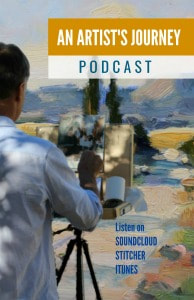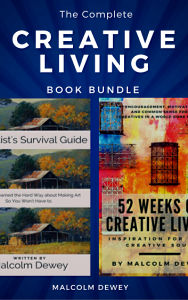|
Ever feel like we're living in a world where the corporations, banks and governments are taking care of themselves and leaving the rest of us with the tab? Of course that is exactly what is happening. Pam Brown, born way back in 1928, had it right when she said artists are seen as a self-indulgent superfluity. But you know what? It's time for a change! Let's talk about a Creative Awakening heading into 2024.
First let me encourage you to view The Price of Everything. A new documentary directed by Nathaniel Khan. There is no disputing that it is an excellent film. It has prompted me to spend some time thinking about the contents movie. It forced me to think deeply about the art world and my little place within it. Actually I was unsettled by it. But in the end I am comforted by it too. But before I get to that here are my thoughts on the movie, art prices and more. All artists are different. Most want to improve. Many will refocus each New Year and resolve, in some way, to make progress. But sadly most artists, like everyone else, will run out of time and motivation early in the year. Sorry if that sounds a downer, but we have all been there, right? Only a tiny percentage of people have mastered the secret to success. What are the two things that everyone needs to achieve success? Quite simple. Close call. It seems that procrastination is part of how our brain works. It is not your fault if you choose to read the paper all day, snooze and then break for lunch. Ignoring those chores, the report and starting that project is part of what makes us human. Here I was feeling slightly guilty about not finishing a painting today, but it is okay. I am being normal. Studies suggest that our brains default to our old wiring system. The limbic system. The reptile brain. You know the fight or flight, eat, have sex and do nothing side of the brain. In fact anything we face in a day passes through the reptile brain for assessment. The default setting is "do nothing unless you will really suffer for it". And it means right now not later. So hanging the picture is a huge waste of energy according to the reptile brain. Do not do it. Unless it means delaying tucking into that slice of cheesecake on the table. Okay then. Picture goes up. Cheesecake is eaten. Reptile is happy. Then there is the clever-clogs side of the brain. The pre-frontal cortex that developed last week. Relatively speaking, that is, compared to our extremely ancient reptile brain. The cortex takes care of the logical, rational thinking. The planning for a rainy day and complex strategies that make insurance salespeople so annoying. The problem is that the reptile brain is very efficient. Like a thug in the alley. Or a great white shark heading for you. It makes a compelling argument to say the least. How does the cortex stand a chance? The odds are against defeating the reptile brain. This explains binge-watching TV episodes. obesity, playing video games when you should be working and apathy in the face of almost anything important. Governments are trying to tell us to get our act together. Health issues and economic problems stem from this attitude. Except big brother goes about it all wrong. You cannot punish people and expect them to do better things. You can show the immediate benefits of deciding to change. There is a way to train your brain. It takes practice and time. It is a victory of the rational brain over the reptile brain. Like a hero outgunned by the villain. The hero has to rely on cunning, training and quick thinking like a ninja. The villain relies on brute force and gets outwitted by the ninja brain. As you train your brain it becomes stronger, better and develops the habit of success. Repeated triumphs, big and small, on a daily basis. The scientists call this neuroplasticity. The ability to mold the brain to rewire itself and make new habits. Good habits that see the benefits of starting even if the rewards are delayed. Is it not wonderful to know that you can mold your brain into doing amazing things? Highly successful people have developed habits for achievement. There is nothing that makes (insert famous name) that much better than you or I. Even with innate talent. If that person does not get off his duff and start he will remain potential only. Ask yourself what thoughts go through your head when faced with an idea about starting something worthwhile. Try to stand aside and watch what your reptile brain throws up instinctively. You may be surprised and even shocked at the lame excuses that are designed to keep you down: Start painting? How silly! Childish even when there is so much trouble in the world. I have a real job. Now lets eat some chips. Forget about New Year's resolutions. You know what you need to do right now. Start. Whether it is for your health, physical or mental. Your income. Your self-worth. Your life. Simply start today. Repeat. Change your reality. What will you start today? It is one of the peculiar parts of human nature. The desire to create something as well as the appreciation of art for art's sake. No other species does this. What makes this even more peculiar is that art is perceived as merely a luxury. True when survival is at stake purchasing or creating a painting is not a priority. Yet even in the extremes of war the preservation of art was important. Important enough for people to risk their lives. We saw this in the true story recently shown in the movie Monuments Men.
Think of the history of art. What compelled cave paintings when life was so precarious? Perhaps art had supernatural power to help them survive? Despite weapons and strength the human mind sought something more from art. Even in these modern times art can provoke extreme responses. But how is this relevant to you me? I simply want to make art and maybe you feel the same or you want to collect a special piece of art. You see there is still one big issue that artists struggle with. It is the doubt that what they are producing is not good enough. Even worse is the artist who does not start creating because of self doubt. Yes there are other challenges artists face too, but so long as the doubt exists there is no more energy to face these challenges. That is what doubt does. It steals the artist's will to create. What is the answer? There is only one response to doubt. Make a start. Persist. We would not have been given the urge to create and appreciate art if it was not important. Animals can attack and destroy and so too can humans. But only humans create art for the sake of art. It does matter. Art is part of what makes us unique. So when the doubts surface remember that your art is necessary. Do not hide your talents. Share your art and be confident that you are following a tradition of endeavour that is unique in the universe. That old nemesis of mine has stopped by my studio this week. Perhaps it is because I have had a busy few weeks on commissions, which had led me to lower my guard? This this old friend, or should I say fiend, disguises itself in many inviting ways. Before I knew it time had gone and I had nothing to show for it. I speak of procrastination. That artist's bane if I want to get all "middle earth" and dramatic. I have no shortage of ideas for new projects and I have a list to prove it. Yes there is much to do, but... Then I came across the above quote by American artistJohn F Carlson. A renowned landscape artist of the early 20th century and art mentor. There is the notion that we must paint every day to become anywhere near good enough to make it. Well there is much to say about that idea and the debate could go on. I know that I held to that notion as well, but not anymore. I do believe that an artist must paint often and as much as possible, but there must be a foundation first. A foundation of study, thought and preparation. If this means taking time off to think on a subject then do so. To spend a few days sketching, tinkering with color mixes perhaps and then? Action! Spontaneous action that has focus and intent will achieve much more in a day than aimless repetition over six weeks. I particularly love the part where Carlson says "Those who absorb and digest their experiences..." Is that not what being an artist is all about? Writers do their best work when they rely upon their close observations of life and past experiences. Artists who paint simply to record without relying upon their experience will render a painting lacking in emotion. Mountains of strength... Wow! No simpering little brush fiddling about here! Paint with strength and energy. Large brushes, much paint, bold color and strong values. That will do far more for creating a painting with impact than days of overworking in the studio. Spontaneous work can mean diving in and completing a painting alla prima or it can mean approaching the painting session with gusto on day two. The point is to get stuck in and try to let intuition guide you. Often you will find yourself breathless at the end of a painting session. You arm may be tired and you will feel mentally spent. Is that not living fully in the moment? In the end it is about balance between preparation and completion. Both are part of the artist's life and all are connected to produce a worthy painting. It is an attitude that we can all access if we want it. It will not take the fun out of painting or add pressure to produce. I am willing to bet that Carlson's approach of labour and spontaneous action will add excitement and fulfillment to your painting experience. Do you have trouble with procrastination or other creative blocks? How do you deal with them? It would be helpful to hear how other artists deal with this.
Amen! Can you relate?
It seems that every day I need to call on courage to do work on my art, share it and let it go. Courage comes prepacked in the young and appears to diminish over time. Why is that? Sometimes one has to wonder why we still stump up to the easel, keyboard or whatever workstation you have to plug away. It takes courage to show up and do the work. But then who can complain when one has another chance to make good? That is the crux I think. Today could be a breakthrough moment. Hope. It is that bit of excitement at the possibility of doing something special. It opens the curtain to the soul and the light pours in. Create something and risk be damned! In this time of media and information overload it is easy for artists to get caught up in the whole tussle of marketing. This is understandable. The internet and all the possibilities that go with thousands of apps, social media and wireless connectivity compels us to try something. Not to do so seems almost negligent. Are we not supposed to improve our business skills in this new age? Must we not all be self-sufficient and productive?
Aside for a few celebrity artists who can live like recluses while their agents do all the messy marketing, we need to take charge and make things happen. Yes I know that I have only seconds to get a collector's attention when there are so many other artists offering their work online. I know, rather vaguely, that websites must be optimized and this is called SEO. I expect that I will need a teenager to explain it all, but I shan't bother because there are better things to do. Like painting. Running after sales can be time consuming and stressful. Vincent Van Gogh would no doubt agree. So Vincent left this job to his brother Theo, which was not the best move in art marketing history. Yes it is stressful and I find that this hampers my work. Painting is for me an emotional thing. Not technical. Of course there are many techniques in painting, but once I get an idea for a painting I go for it. It is an emotional process. My mood has a direct bearing on the painting. There is simply no getting away from it. Van Gogh's quote above may seem to describe his process as a technical exercise. This is surely a mistake. He was rather talking about persistence. Van Gogh's work is seething with emotion. There is no doubt that Van Gogh, once he had an idea in mind, painted with furious attention. Every brushstroke is filled with vigour. His trees, for instance, would writhe like snakes on fire. The farm fields appear to be baking in the heat and the figures broken and bent under the relentless burdens of rural life. Yes Van Gogh knew how to work hard. He would make an early start each day and sometimes work until after nightfall. Pushing himself to extreme's of mental and physical exertion was evidently the wrong way to go about it. Today the experts would talk about keeping an optimal work-life-balance. Van Gogh had other problems to worry about as we well know. The net result of Van Gogh's dedication is a body of work that is treasured to this day. Is there a more famous artist? There is even a very good song about him and we are all listening now. What to take away from Van Gogh's process is:
Make a start and produce something worthwhile. Start again. That is what artists must do before anything else. What is holding you back from doing the work you would love to do? Self help books abound on this topic. It does seem that since the banks stole everyone's money and plunged us into the Great Recession that having any sort of income is nothing to complain about. Even when the governments gave the banks our hard earned taxes we still had to be grateful to have a roof over our heads. Many lost theirs. But this still does not quell the gut wrenching desire to reach fulfillment. We all need an outlet for our creativty. So that question again. What is holding you back? The answer will come to each artist as soon as that artist decides not to be dictated to by a gatekeeper. What is a gatekeeper? Any person, institution or circumstance that stands in your way from you doing the work you were meant to do. Before you start waving a fist at someone remember that the decision to be held back is your own. Unless you are strapped to a chair you are free to move forward the moment you decide to do so. There are many examples of artists who decided to forge their own path despite the gatekeepers in their path. Monet bypassed the Salon and paved the way for impressionism. Picasso went another direction and became a hero. Contemporary artist Jack Vettriano taught himself to paint then persisted in the face of scorn and vitriol from the establishment (galleries & critics) to become Britain's most popular artist. The decision to persist against the odds applies to all artists and creative people. Recently I watched the trailer to a new movie called Chef. It is about a chef who wants to express his unique creativity, but is frustrated by his boss and his environment. Inevitably he gets fired. "Be an artist in your own time," screams his boss. That is exactly the invitation we all need to hear. So in desperation the chef ends up converting a truck into a restaurant on wheels. This is a big trend these days. Gourmet chefs serving their fans on their own terms. This reminds us that it is the freedom to create on our own terms that is so important in life. We always see freedom when there is nothing to lose. That is something to think about. You be an artist in your own time! It's my restaurant. Forget money as a goal. Freedom to make your own art will produce the rewards both financial and in personal fulfillment. What about recognition? I suspect that these days everyone is famous so no one is. What this means is that the avenues for expression are so many and competion so fierce that pursuing recognition or fame is pointless. Fame is now generic. What matters is keeping the focus on producing good work. This is what the world needs from us. We must strive to do our best work then let it go. Start another project and keep moving forward. So what is holding you back? Forget retirement. It is a word best suited to appliances, old cars and farm animals that are put out to pasture. Retirement. This word comes with many emotionally charged ideas. Mostly negative. For my father's generation retirement was the reward that came after a long working life. If you were lucky the company pension plan would kick in at age 65. If not you had to rely on what little you had saved and the government pension would take care of you. This concept of retirement has not survived as long as those still believing in it. It is deader than roadkill.
Today we know that retirement is still a goal for the working masses. A time when we can relax and play with our grandchildren. Except we have had to plan for retirement with private retirement policies and savings. Not much of change from my dad's days, but more empowering for sure. More scary too if you not built up a decent nest egg over twenty or more years. This idea of retirement also needs to be put to sleep. Forget retirement. It is a word best suited to appliances, old cars and farm animals that are put out to pasture. Instead let us consider another idea. Instead of retirement we need to reinvent ourselves. This process is not for our sixties either. Reinvention is best undertaken many times over our lifetime. At least every five years, maybe more, beginning from when we leave school. What is reinvention all about? For starters if you have been an adult for some time, lets say in your forties, then you have probably reinvented yourself many times already. Perhaps a change in job, career, marriage, children, clothing and in many other ways to survive and thrive. The trick is to recognise these changes and use them for a process of mental change too. To put it bluntly sometimes we need to catch a wake-up! Do ourselves a favour and live life. Stop moaning and blaming others and get on with it. How to do this? Many ways beckon and opportunities abound if we look for them. Continuing education is critical. Learn skills. Read. Listen to podcasts, audio books and try out ways to expand your mind and horizons. Each time we do this we are reinventing ourselves. It is a process of empowerment. Freedom from established dogma. Reinvention in our sixties? Do you know that the most affluent retirees have multiple income streams after retirement? 98% according to figures from insurance giant Sanlam. In my dad's day the idea of income streams in retirement, other than pension, was laughable. A sign that you have failed to carry out the masterplan. Today we understand that keeping our minds active in work that we love and choose to do is the key to fulfillment. Sure you need a financial cushion in place for peace of mind, but you can now remain part of the economy, contribute and share in ways that were unthinkable twenty years ago. Why is this article headed Artists Don't Retire? Artists refers to anyone thinking and acting creatively. Artists take responsibility for themselves and take action. Reinvention is the way for all artists of the world. Read more: |
AuthorMalcolm Dewey: Artist. Country: South Africa Archives
June 2024
Categories
All
FREE
|
|

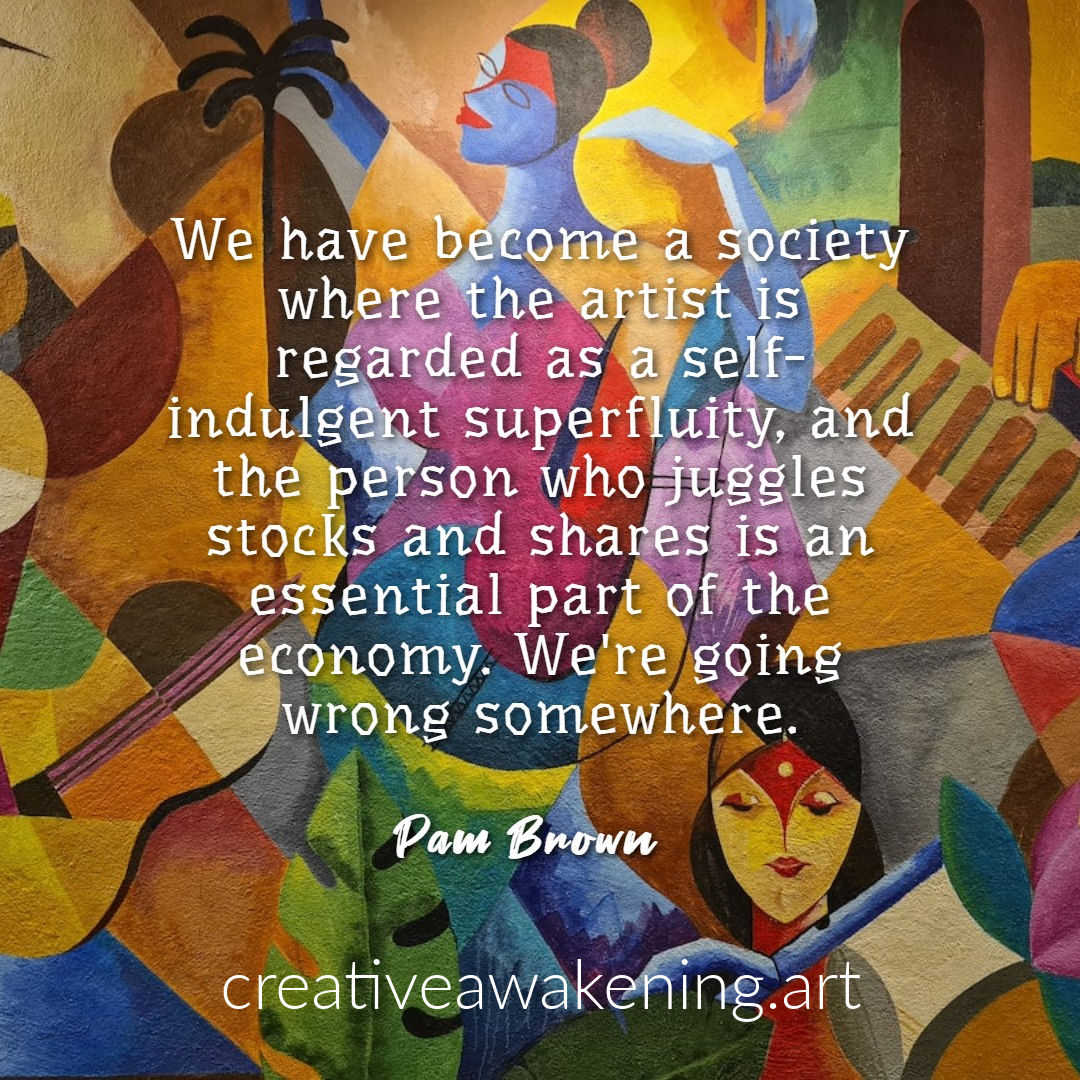
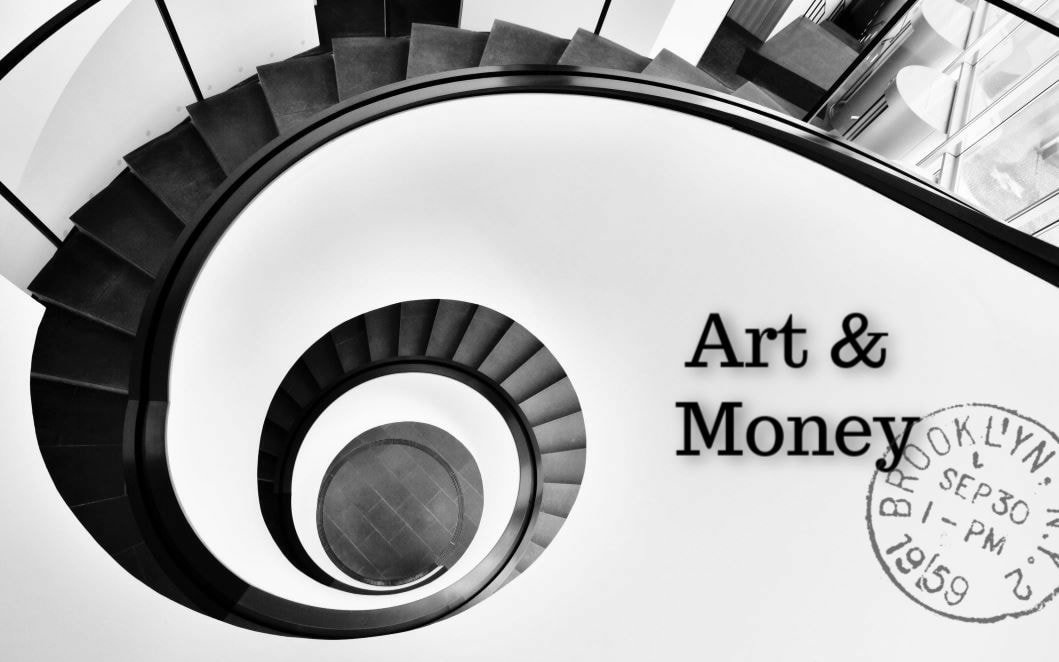
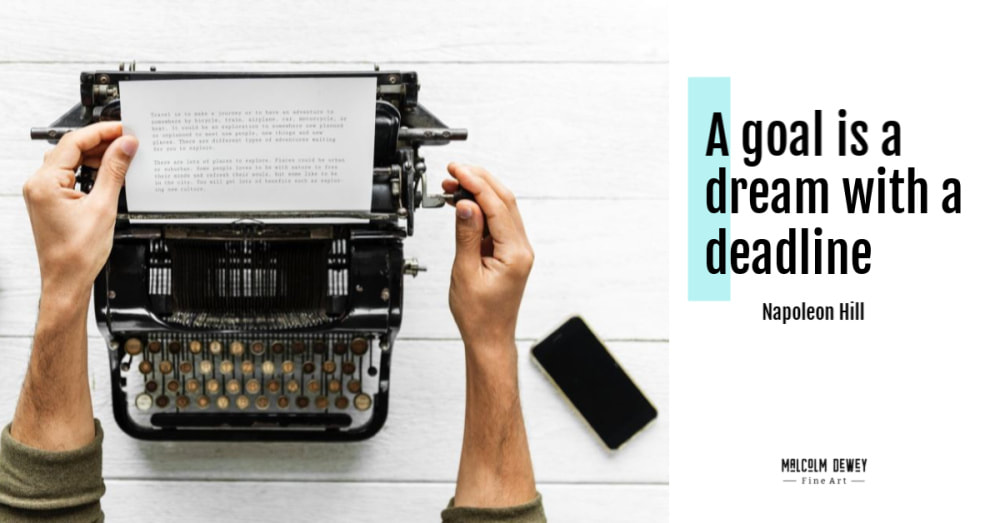
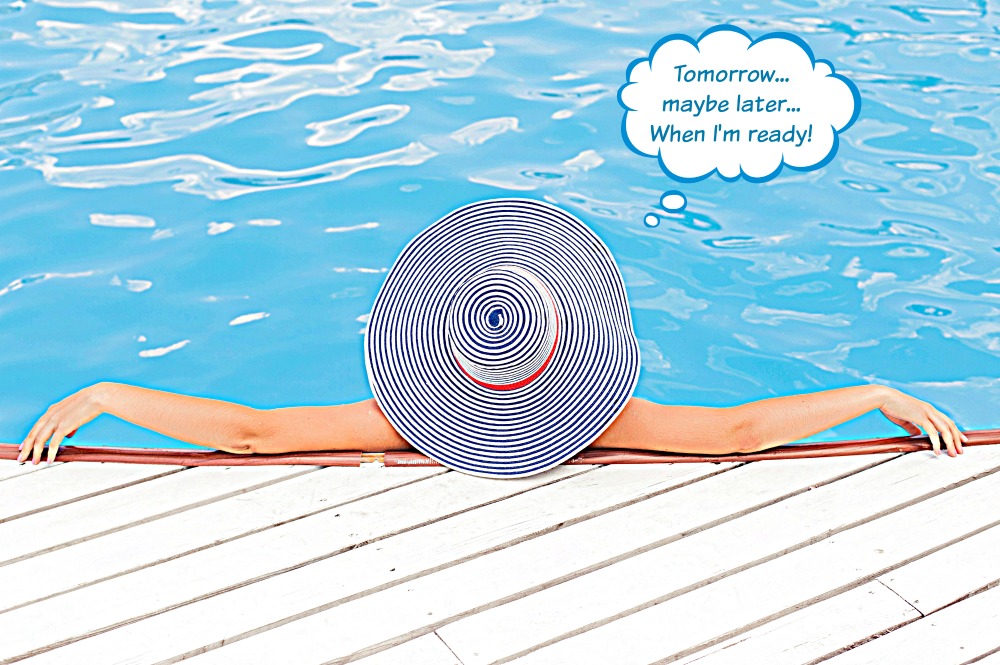

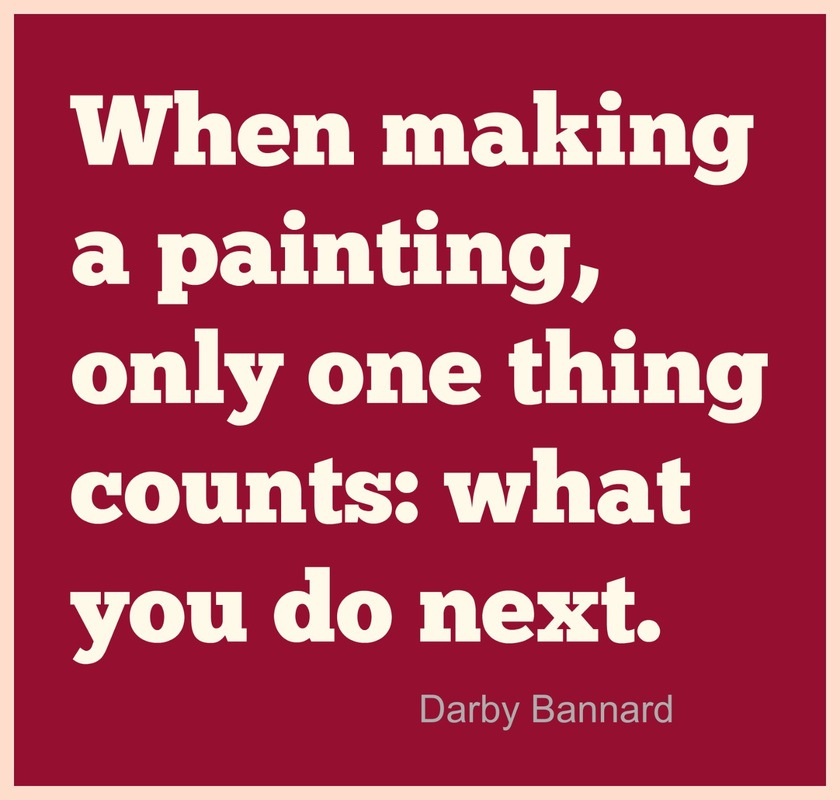
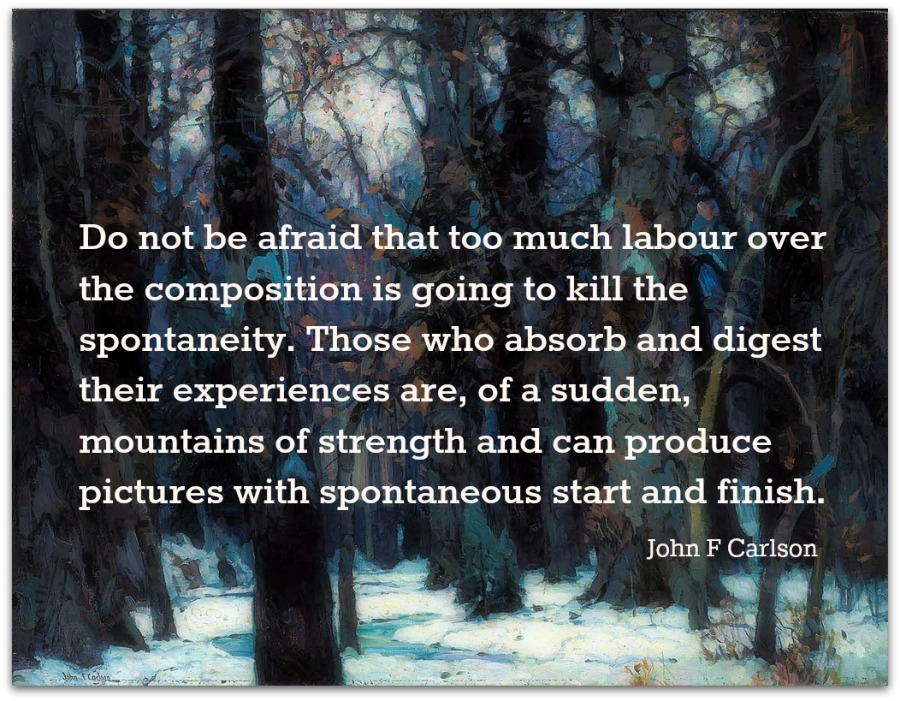

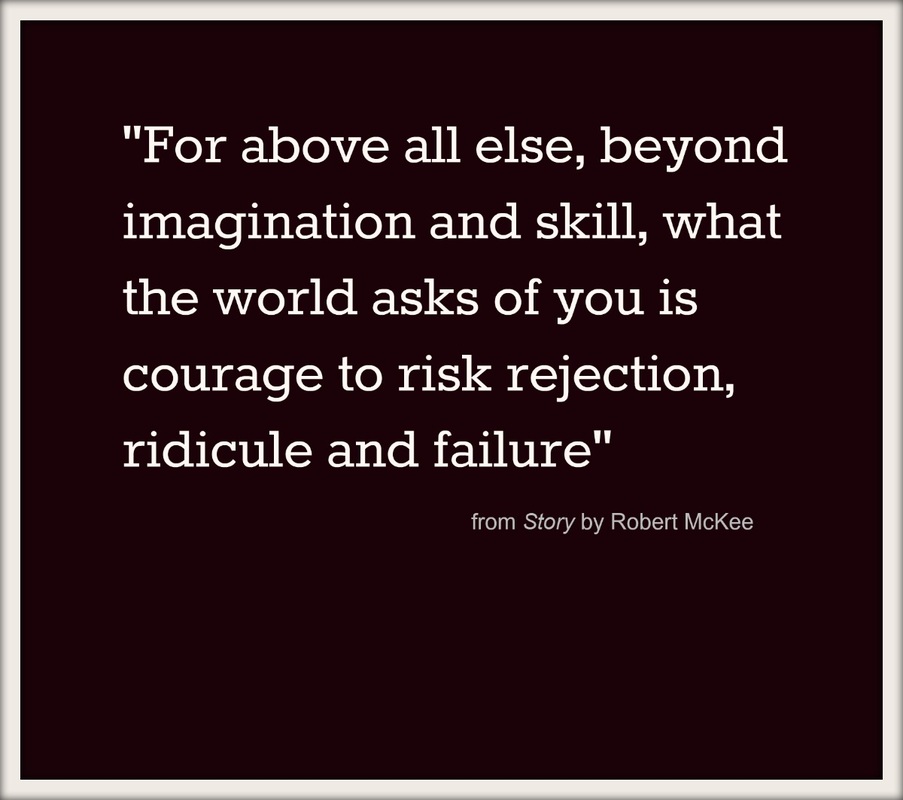
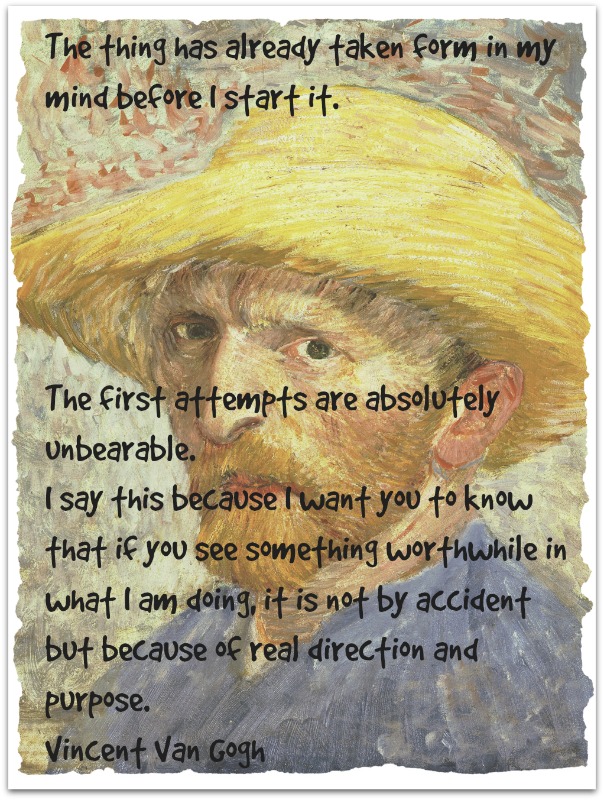
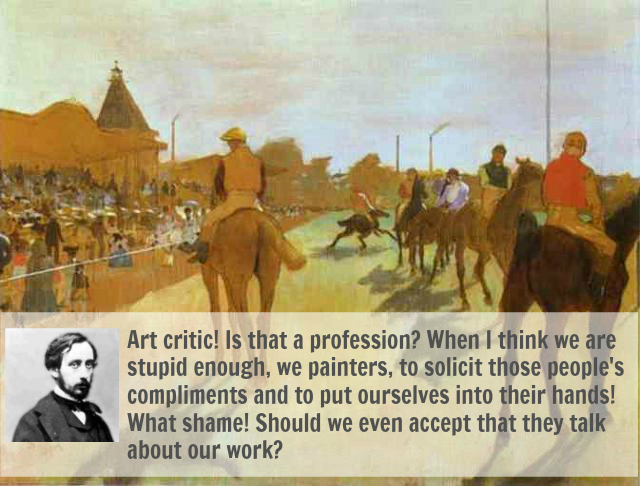
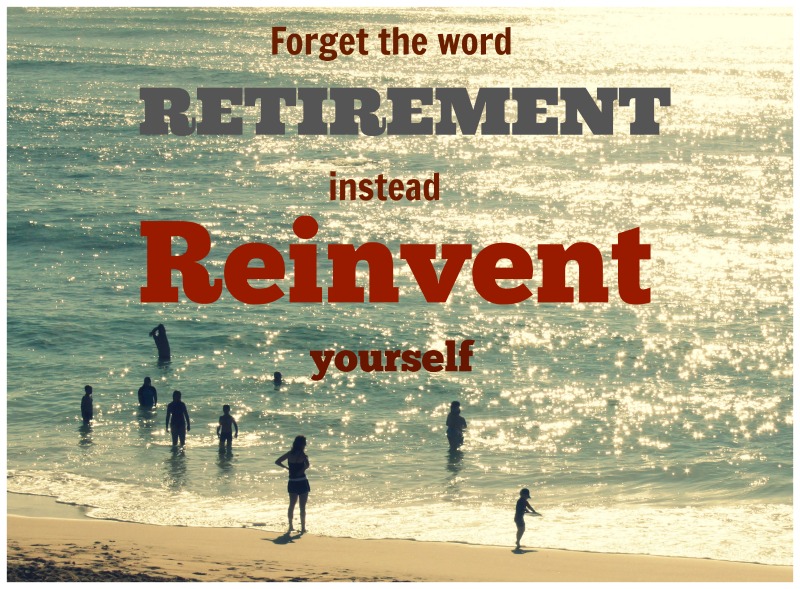


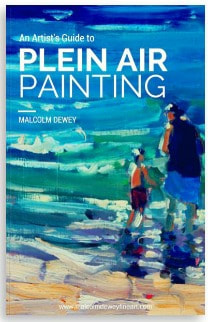
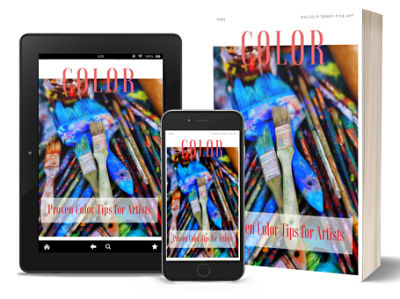
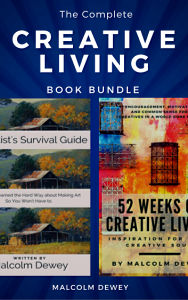
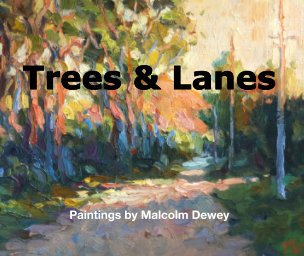


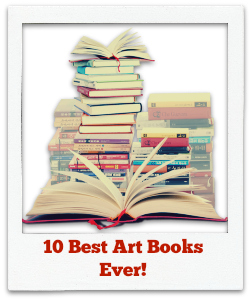
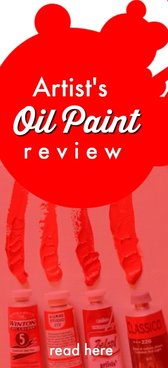
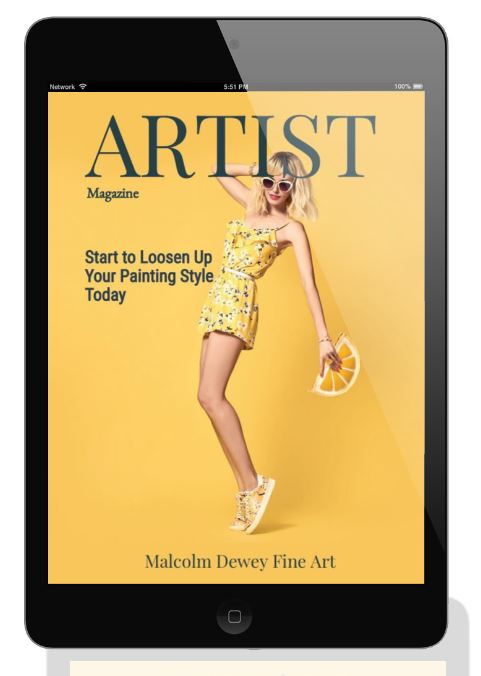
 RSS Feed
RSS Feed
